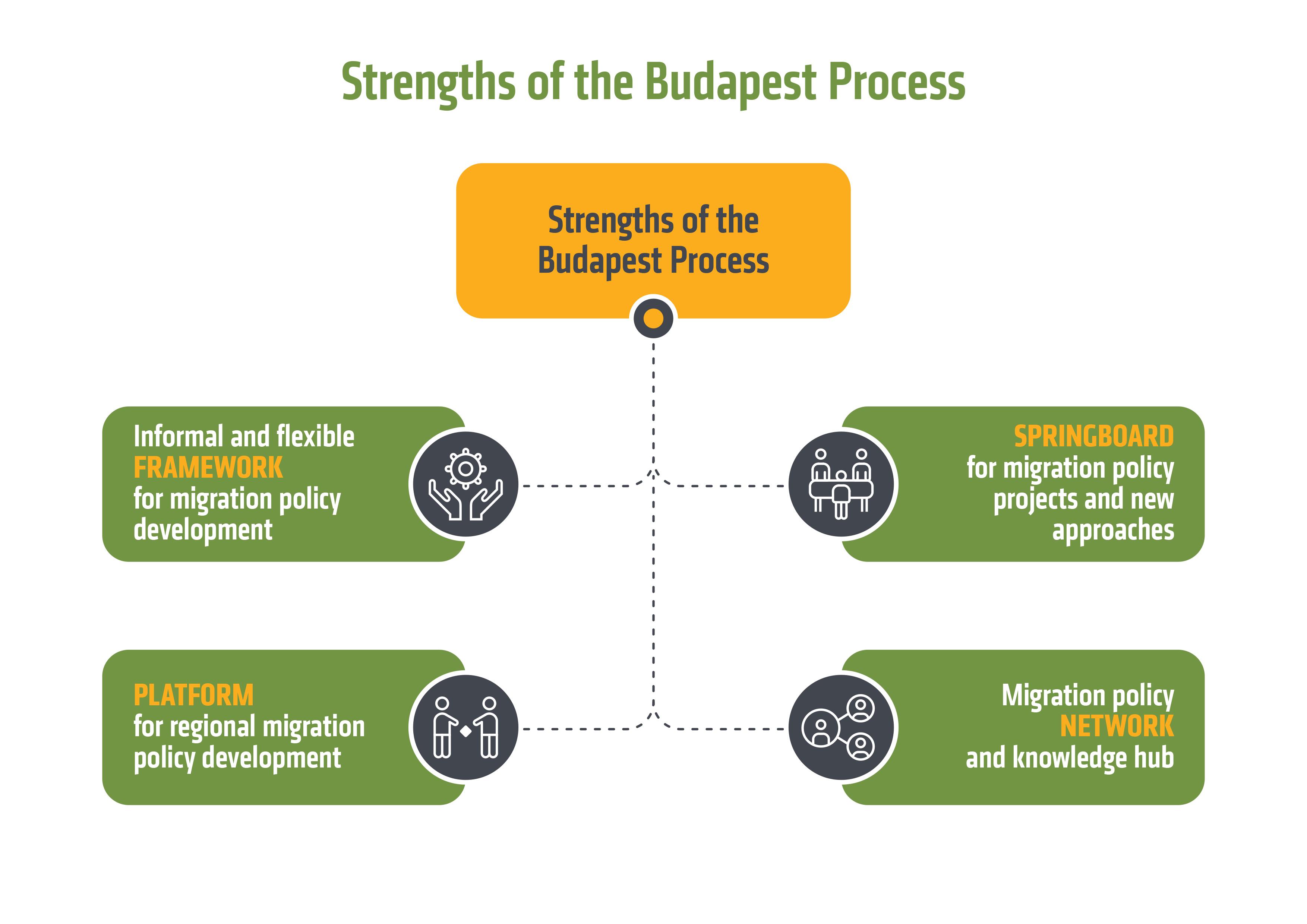The Budapest Process in a nutshell
The Budapest Process is an interregional dialogue on migration stretching from Europe to the Silk Routes Region – also covering Europe’s Eastern neighbours, the Western Balkans and Central Asia. The Budapest Process provides a platform for dialogue and operational cooperation for over 50 governments and 10 international organisations with the aim to strengthen cooperation on migration and mobility. Furthermore, the dialogue partners are committed to promoting safe, orderly and regular migration along the migration routes, as highlighted in the 2024 Ministerial Declaration and Call for Action.
For more than 30 years, the Budapest Process has developed a far-reaching network among its participating states and addressed numerous thematic areas. The dialogue is known and valued in the regions it covers. The results of dialogue manifests in wide-ranging networks, the development of a common language on migration issues and trust to efficiently cooperate on these matters. The Budapest Process also facilitates concrete project development and operational cooperation in the regions it covers and offers a platform for learning and training between peers.
The participating states meet annually for Senior Officials’ Meetings to discuss developments in the region and to strategically steer the dialogue and its priorities. States are also invited to participate in Thematic Working Groups which gather expert officials from national administrations and institutions to examine, discuss and share information and best practices on matters dealing with specific thematic areas of migration governance.

Operationalisation of the dialogue
The Budapest Process has come to master the balance and interplay between political dialogue and operational action, with concrete projects flanking the dialogue since 2011 and creating tangible outcomes for the political objectives established. This interplay between political dialogue and concrete on-the-ground activities, where both components are equally necessary, has become a foundational principle of the Budapest Process. The donor community, including both bilateral donors and the European Commission, has come to value the operationalisation of the dialogue, evidenced by the robust support for project and dialogue activities since 2011.
The projects in the Silk Routes Region serve to improve the capacities of administrations to better manage all aspects related to migration, including awareness of how migration could be more beneficial for the development of each country. The success of the operational activities in projects depends on the trust and political commitments anchored in the Budapest Process dialogue. This makes the political dialogue indispensable.

